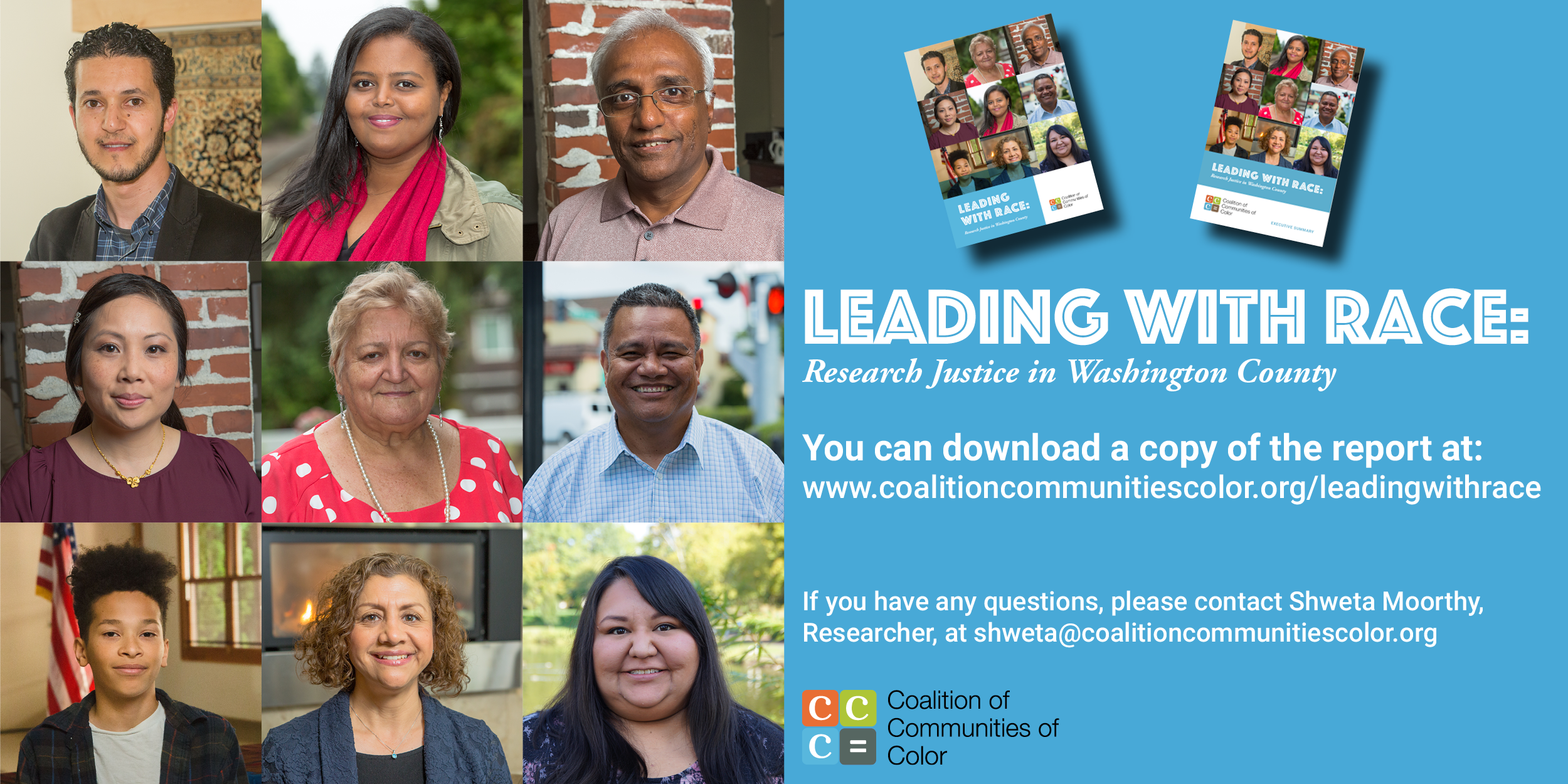Call for Applications: CCC Research Justice IN WASHINGTON COUNTY Fellowship
The Coalition of Communities of Color (CCC) is an alliance of 19 culturally specific organizations that come together to work for racial justice transformation in the region. We are proud of the work we have accomplished through our research justice, advocacy and leadership development programs in the racial justice movement.
The CCC is proud to announce our first Research Justice Fellowship to develop community leadership in data and research in order to build power, organize and advocate for racial justice in the region. If you are interested in learning how to use research and data to build power and advocate for racial justice, this is the right opportunity for you. Learn more about our Research Justice vision here.
What is the Research Justice Fellowship?
This program is designed to help community members learn how to design and implement small-scale research projects around issues that derive from their experiences with institutional racism. In the process, the cohort will give feedback and inform the creation of an online data tool called the Regional Equity Atlas that will hold the research they generate.
We will provide training, stipends, research expenses and the opportunity to create and implement research projects that create knowledge and build power to organize and advocate for change.
Our goal is to build a cohort of strong community leaders with an understanding of the role of research in organizing and advocacy for racial justice. The project is guided by a vision of research justice, which seeks to amplify and emphasize the voices of those most directly impacted by institutional racism – in particular, people of color – in the work of making our communities equitable.
Frequently Asked Questions
Does the fellowship pay?
- Research Justice Fellows will receive a $,1000 stipend. CCC will cover costs for research-related expenses such as supplies (flipcharts, photocopies, printouts etc) and public transit/mileage reimbursement.
Are there geographical, age, education, or experience requirements?
- The fellowship is open to everyone 18 years or older who identifies as a person of color.
- There are no education, experience and immigration requirements.
- Research Justice Fellows need to live or work or have a strong relationship to Washington County.
What are expectations from the program and the hours worked?
- This is a 2 month program from Oct-Nov 2018 and it requires a 60 hour time commitment, which includes:
- Participating in trainings on Oct 6-7, 2018
- Implementing the research
- Participating in the development of the online data tool
- In the trainings, community researchers will develop a timeline of research implementation including scheduling check-ins with CCC for guidance, assistance and accountability in implementation of research in October and November.
How do I apply and ask other questions?
To apply or ask other questions, please fill out this simple application form to join the 2018 Community Researchers Program cohort. Applications are due by Monday, September 24, 2018. Up to 12 accepted applicants will receive email and phone notification and information no later than September 28, 2018. The trainings will take place on Saturday-Sunday October 6-7, 2018. Please send any questions to Shweta Moorthy, Researcher, at researchjustice@coalitioncommunitiescolor.org or call 217-621-2096.













